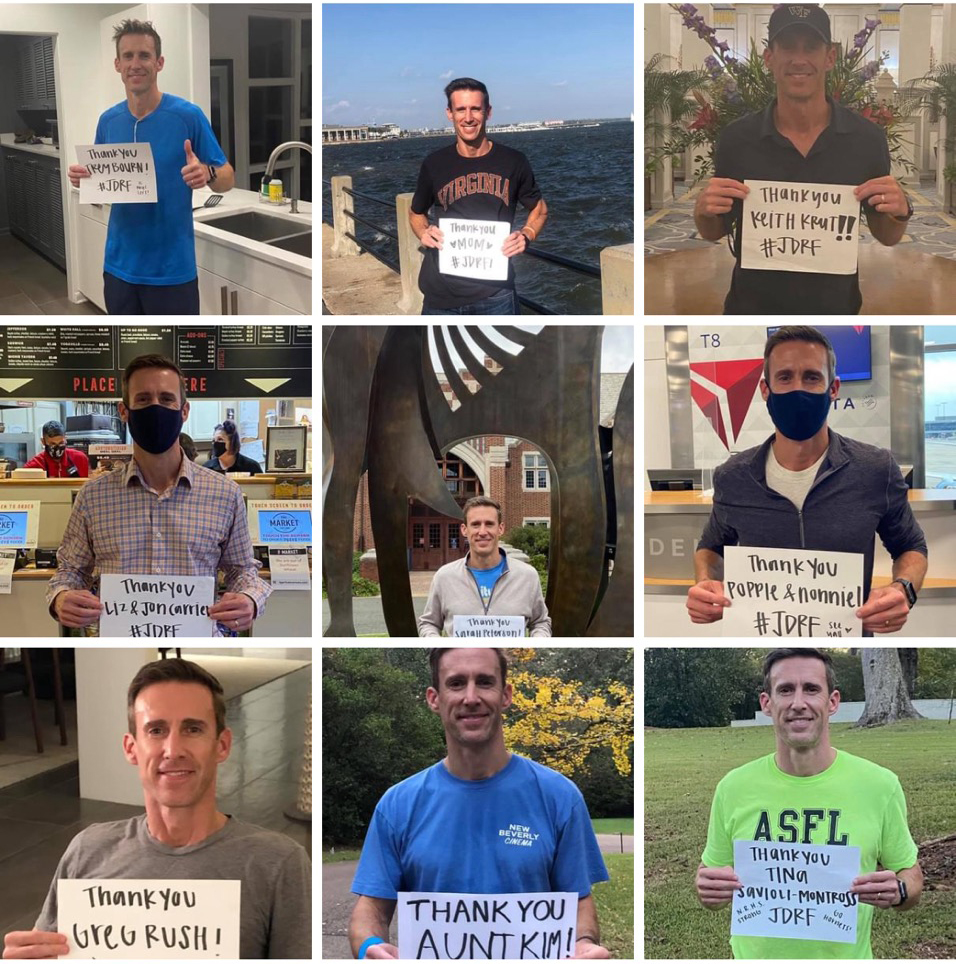Editor’s note: Written by guest blogger Matthew Tilton, D.O. In addition to being a physician, he is the father of 9-year-old Adalyn (pictured above), who lives with type 1 diabetes (T1D). Read his previous story for Breakthrough T1D.
As summer draws to a close and the back-to-school season begins, many parents are busy preparing their children for a new academic year. For many families, this requires a few more checkboxes on the list. My daughter Adalyn, who has type 1 diabetes (T1D), requires more than the usual school supplies and new clothes. Our back-to-school checklist includes items like insulin, glucose monitors, and an emergency care plan, all essential for her well-being.
As a parent of a child with T1D, the transition to a new school year brings a mix of emotions. There’s the usual excitement and straight-up anxiety. Will the teachers have questions? What will her classmates say? These are the questions that linger in my mind as the school year approaches. It turns out I am more anxious than she is.
The importance of a well-coordinated support system
Adalyn, however, is determined to approach the new school year with confidence. “I am a little nervous, but not much. I know my nurse is there to help me,” she said recently. Her words are a reminder of the importance of having a well-coordinated support system in place. Making sure the school nurse knows Adalyn’s care plan and is prepared to respond to any situation is a critical step in ensuring her safety.
Related content: School nurses have incredible impact
Additionally, we’ve worked closely with her teachers to make sure they’re aware of her condition and know how to take the right steps now to ensure her success later. This includes understanding the signs of high or low blood sugar and knowing when to allow her a break or snack. If you are looking for permission to be “that parent,” here you go. Be that parent. As a physician, occasional coach, and father, I have never once thought, “Oh, I really regret being too prepared for this.” I am sure I may be a headache, but it is this collaboration between parents, healthcare professionals, and educators that forms the foundation of a safe and supportive learning environment.
Creating an environment for thriving
Let’s not forget that continuous glucose monitors and insulin pumps have been life-changing. I’m thankful for the incredible advancements in medical technology that allow Adalyn to lead a relatively normal life. These tools enable her to do things she loves, like playing softball and other sports. But these tools are only part of the equation. The real challenge lies in creating an environment where she can thrive academically and socially, without constant worry.
This is where awareness and education become crucial. Schools must be equipped with the knowledge to support students with T1D, with the necessary medical supplies, and foster an environment where every child feels safe and understood. I have it on good authority teachers aren’t trained on T1D and all that comes along with it. That is where we—the prepared parents—come in. Teachers, staff, and even fellow students need to understand what T1D is and how they can help. A simple understanding can go a long way in making sure children like Adalyn feel safe and supported.
Setting our schools—and kids—up for success
If there’s one thing I’ve learned, it’s that managing type 1 diabetes is a team effort. It requires not just the dedication of parents and medical professionals, but also the understanding and cooperation of educators and community members.
So, as we prepare for another school year, I want to make a call to action. Let’s set our schools—and our kids—up for success. Let’s ensure that our schools are prepared to support children with T1D and other chronic conditions. This means advocating for better training for school staff, ensuring that schools have the necessary medical supplies, and fostering an environment where every child feels safe and understood.
As we send our children back to school, let’s also commit to sending them into environments where their health needs are met with compassion and competence. Let’s work together to ensure that every child, regardless of their medical condition, has the opportunity to learn and grow in a safe and supportive setting. This is not just about managing a disease; it’s about empowering our children to live their fullest lives. And until there are cures, we parents and caregivers must be the advocates, the educators, and the support system they need.
Together, we can make a difference
Breakthrough T1D offers a school guide to help parents advocate for their children’s needs. They also have resources to help educators understand the unique needs of students with T1D. Consult their T1D Resource Library for the school guide and other helpful life with T1D guides.
The road ahead is challenging, but we are not alone. Together, we can make a difference. Just like Adalyn confidently steps up to every challenge, we, too, must step up, ensuring that every child with T1D has the chance to thrive, both in school and in life.






